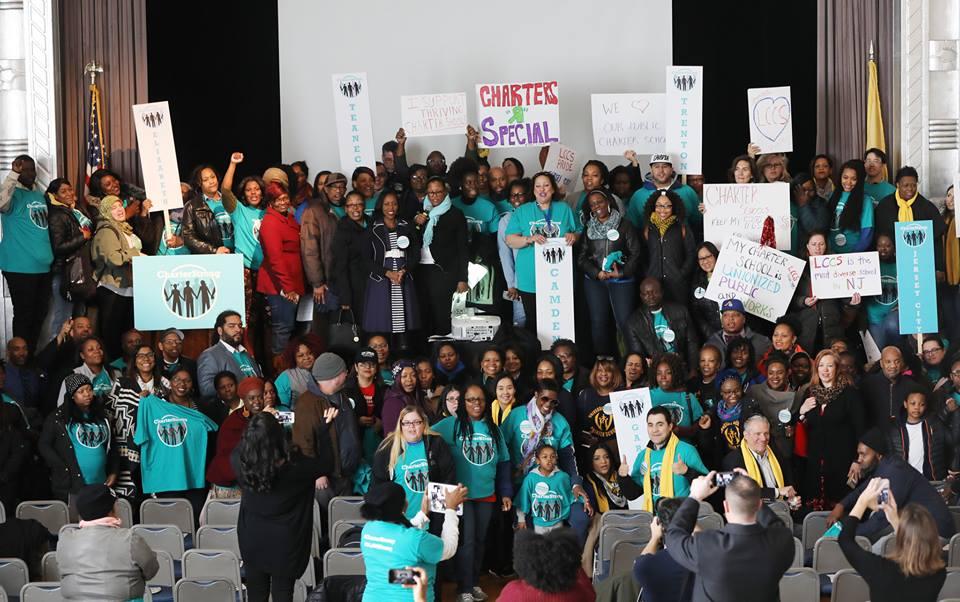
Voices from the NJ Parent Summit: “There’s Proof That Charter Schools Work So Why Would You Stop?”
August 15, 2018
Not So Fast with the “We” Word, Trenton Superintendent McDowell. You’re Leaving Out the Parents.
August 16, 2018Voices from the NJ Parent Summit: “As the Only Black Person in My Class, I Lost a Sense of Self.”
This is a love story.
Twelve years ago, Shiana Torres was a student at Essex County Community College. She had grown up in Summit, a mostly white town where she often felt alienated. “I excelled academically,” she recalled, “so I was always the only Black person in my class. You lose a sense of self.” Suddenly she noticed a young man in a restaurant on Springfield Avenue in front of a Chinese restaurant and, well, you know the rest. Her future husband, of Afro-Cuban heritage, had grown up in Parsippany, another white Jersey town, and they instantly bonded.
And now they live in Newark — not just Newark but the South Ward — with their three children, an 11-year-old, a seven-year-old, and a sixth-month-old baby. I wanted to hear Shiana’s school choice story.
Her two older children attend Great Oaks Legacy Charter School but in kindergarten and first grade her son attended a district school, Ivy Hill Elementary School. “It was terrible,” she said. Shiana tells me that she is “one of those parents” who are inside the school as often as possible. She would come in, peer in the window and see the children watching a video while the teacher sat there. (Shiana wonders if this is because the teacher was preoccupied running for a council position in a neighboring town. “She took off so many days,” she exclaimed.)
This mom started looking at what she called “community-based schools.” She had heard about Legacy, which was founded by Paula White (Assistant Commissioner of the DOE for about one minute.). Legacy merged with another charter, Great Oaks, and she knew the school encouraged parent involvement, unlike Ivy Hill. But the school was full. That was no impediment to Shiana. For six months, every single Monday, she said, she would call the main office. Finally, three weeks before school was ending, she got a call back: a space had opened up because a child was moving. Success!
Sort of. When her son arrived on that June day, the school evaluated him and found that he was a full year behind his peers in reading and math. He would have to repeat first grade because Legacy didn’t do social promotion.
I asked about the transition. “It was very hard for him,” she said. “He was coming from a traditional public school with no rules and no regulations. I think it took him three years to get fully acclimated.” Was it too strict, I asked? “No,” she said, “I think it’s perfect because you’re making parents do what they’re supposed to be doing. Especially when they give you a voucher for a free uniform, there is no excuse not to have your kid in a uniform.” Her daughter started Legacy in pre-K, she said, and “I noticed the difference. Because she began her education there, she had no transition problems. She’s fine. I’ll send my baby there too!”
In retrospect, her son’s transition was a small price to pay for a school that regarded the community as part of its culture, exactly what the Torres family had been looking for. In fact, when Shiana was pregnant with her baby, she took a community parenting class there taught by Paula White. “I loved it!” she said. “I got a lot of tips and she gave us all a copy of her book.”
Shiana is a social worker at Healthy Families of America, primarily doing home visits to parents who are regarded as high-risk for domestic violence and child abuse. She also assists with Social Media Management and Development and gives workshops to various groups on networking, cultural diversity and sensitivity as well as the affects of trauma on special populations. She’s especially proud that her organization just received a highly-competitive grant from Boston Medical to address trauma-based issues for young children who witness violence, racial inequities, and homelessness, and explained to me how seeing violence creates health problems and that racial inequities translate to subpar health care. She is also Treasurer for the Essex County Council for Young Children.
She and her husband have no plans to leave Newark, where the alienation they felt respectively in Summit and Parsippany is absent for their children. “They’re not the only Black people and they’re getting a good education,” she says. “Why would we leave? We live in a nice three-bedroom apartment instead of cramming into a one-bedroom elsewhere. We just had a third child!”
Shiana has just started her own business called Torres Living, which aspires to help women with personal development and growth. She can be reached at TorresLiviingLLC@gmail.com.




